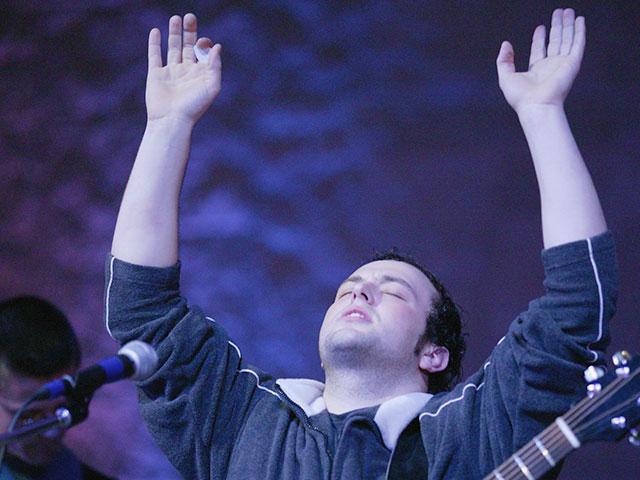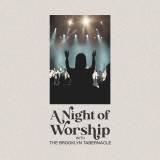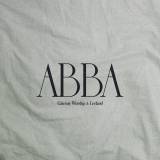The Theology of Worship Leading

THE OFFICE OF WORSHIP LEADER?
One of the struggles I’ve had as a worship leader has been over the issue of the legitimacy of worship leading as an office or gift. I’ve been told that God had called me to be a worship leader, but it’s not listed with pastor, teacher, apostle, evangelist, prophet. I’ve been told that I have a gift of worship leading, but it’s not listed with the other spiritual gifts. So where do I fit?
I want to submit a theological paradigm that I believe provides a Biblical context for the office and function of a worship leader. Ephesians 4:11 tells us, “And He Himself gave some to be apostles, some prophets, some evangelists, and some pastors and teachers…” I don’t think that it is an accident that worship leader is not listed. Paul writes in 1 Corinthians 12:1, “Now concerning spiritual gifts, brethren, I do not want you to be ignorant.” He goes on to write “There are diversities of gifts, but the same Spirit. There are differences of ministries, but the same Lord. And there are diversities of activities, but it is the same God who works all in all. But the manifestation of the Spirit is given to each one for the profit of all” (1 Corinthians 12:4– 7).
There are three words mentioned as it relates to how the gifts of the Spirit function in the church. They are diversities, differences and activities. The original language translates these words distribution, implementation and effect. In other words, all the gifts are from God but they are distributed to different people and implemented different ways through activities that produce an effect. This is where I find the “gift” of worship leading. A worship leader is a pastor, teacher, prophet, evangelist or apostle who exercises their gifts through facilitating sung prayer. It’s not a musical function, but a leadership function. In fact, you can discover the primary leadership function of a worship leader by the songs that they select. Pastors choose songs that emphasize relationship and healing. Evangelists choose songs that are stylistically relevant with simple and easy to understand language. Apostles are concerned for the nations and mission. Teachers are concerned with doctrinal truth and prophets are concerned about purity and holiness.
ALSO SEE: NO YOUR SYNTHESIZER IS NOT THE HOLY SPIRIT
THE FUNCTION OF WORSHIP LEADING
Your theology of worship influences your philosophy of ministry as it relates to the function of worship leading. If you view worship as a musical function, then you’re concerned about song selection and musicality. If you view worship pragmatically, then you’re concerned about setting up the message properly or having a worship ministry that will draw the community. Every pastor has an opinion of how worship should happen, but very few understand the role of a worship leader.
So what is the function of worship leading? Look at the book of Psalms. It is a collection of what I like to call - prayer songs. The prayers of David and others were set to music and incorporated into the worship life of the nation of Israel. They became part of the corporate and private expression of worship to God. Using David’s model as a worship leader, I facilitate the corporate expression of prayer from the congregation to God. It is a relationship based ministry where the worship leader is providing language through prayer songs for the congregation to relate to God. Worship songs are prayers set to music and the set list is equivalent to a list of prayer requests.
This has huge implications as it relates to how I perform my function as a worship leader. It means that I need to have my own private life of prayer. It also means that I need to be in touch with the work of the Spirit within the community of believers I’m serving. In other words, I can’t fake it. My relationship or lack of relationship with God will have a direct influence on my ability to facilitate the corporate sung prayer of the congregation. This is why you can worship with a group of well-rehearsed musicians in a worship service and walk away feeling like you’ve never met God. In other words, worship is not purely musical, but relational in function.
Incidentally, this is the creative impetus behind writing new songs of worship. All “prayer songs” are given to a local congregation for the purpose of facilitating the corporate prayer life of that community. Sometimes, those “prayer songs” inspire other communities and become part of a regional or national expression. I have never written a song with the intent of getting it recorded or to “get the songs out there.” My entire focus is simply to serve the people that show up every week for worship and that includes writing songs that best express the cry that is in their hearts. What happens after that is up to God.
READ MORE ON PAGE 2>>>
The Theology of Worship Leading
![The Theology of Worship Leading]() Reviewed by Admin
on
6:20:00 PM
Rating:
Reviewed by Admin
on
6:20:00 PM
Rating:
Subscribe to:
Post Comments (Atom)
















Post a Comment